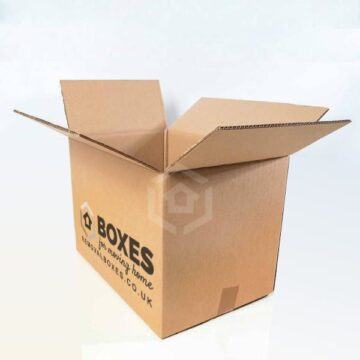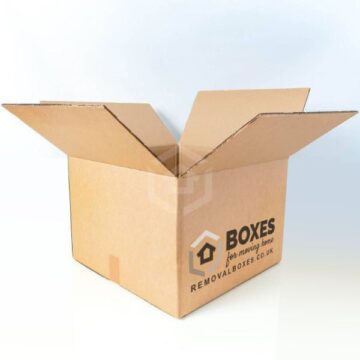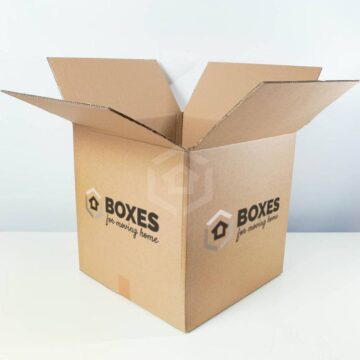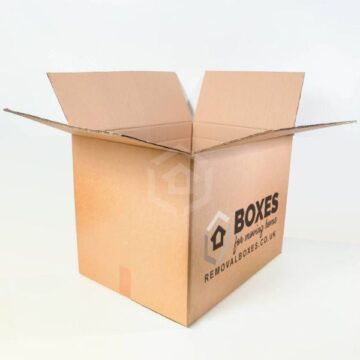Need Boxes for Moving to Declutter Your Home? Buy Now!
Decluttering your home before moving is one of the best ways to streamline the moving process. Not only does it reduce the number of moving boxes you’ll need, but it also makes unpacking much easier. Decluttering helps you part ways with items you no longer need, allows you to recycle responsibly, and can even make you some extra money by selling valuable items. Whether you’re moving across the street or across the country, having a plan for what to keep, sell, recycle, or donate is essential.
In this article, we’ll walk you through the best ways to declutter your home before moving, including tips on where to sell, recycle, and donate your items in the UK.
1. Why Decluttering Before Moving is Essential
Moving is a time-consuming and often stressful process, but decluttering before you pack can significantly reduce that stress. Here’s why it’s crucial:
- Saves Time and Money: The fewer items you have, the less time and money you’ll spend packing, transporting, and unpacking. Many removal companies charge based on the volume of items you’re moving, so decluttering can help you save money by reducing the number of removal boxes you need.
- More Organised Move: Decluttering helps you organise your belongings, making it easier to decide what goes into your boxes for moving. This prevents you from carting unnecessary items to your new home, only to discard them later.
- Fresh Start in Your New Home: Moving is the perfect opportunity for a fresh start. By decluttering, you can begin your new chapter in a clutter-free space, surrounded only by the items that bring you joy and serve a purpose.
2. How to Organise Your Items: Sell, Recycle, or Donate
Before diving into where and how to sell, recycle, or donate, it’s essential to categorise your belongings. Here’s how you can systematically organise your items:
- SELL: Items in good condition that still have value but that you no longer need should go in the “sell” pile. These could include furniture, electronics, clothing, or collectibles.
- RECYCLE: Some items might not have resale value but could be repurposed or recycled, including old electronics, paper, cardboard, and certain plastics.
- DONATE: Items in decent condition but not valuable enough to sell can go to charity. Clothes, books, and kitchen utensils are all items that many organisations will gladly accept.
Once you’ve categorised your items, you can decide the best way to handle each pile. Below, we’ll discuss the best places in the UK to sell, recycle, and donate your unwanted items.
3. Selling Your Items
Selling your unwanted items can help you earn extra cash while also lightening the load of your move. Whether you’re selling furniture, electronics, or clothing, the UK has several great platforms for turning your old belongings into profit. Here are some of the best ways to sell your second-hand items before moving house.
Online Platforms
- eBay: One of the most popular online marketplaces, eBay allows you to list items for auction or as “buy it now.” It’s perfect for selling everything from furniture to electronics, and you can reach a vast audience across the UK.
- Gumtree: Gumtree is a classifieds site where you can list your items locally. It’s particularly useful for larger items like furniture or appliances that people are likely to collect in person. Gumtree is free to use, and you can negotiate directly with buyers.
- Facebook Marketplace: Facebook Marketplace has become one of the go-to places for selling second-hand items. It’s convenient because you can connect with buyers in your local area, and there are no fees involved. You can list items like furniture, clothes, and even moving supplies like removal boxes.
- Vinted: Vinted is an excellent platform for selling clothes, shoes, and accessories. The app is user-friendly and doesn’t charge listing fees, making it a great way to get rid of clothing that no longer fits or suits your style.
- Shpock: Shpock is another classifieds app that focuses on local sales. It’s great for listing smaller items such as electronics, books, and household goods. It’s free to use, and buyers can contact you through the app.
Car Boot Sales
If you prefer selling your items in person, car boot sales are still popular across the UK. You can rent a pitch for a day and sell your unwanted goods directly to buyers. These sales are a fun way to declutter and make quick cash, especially for smaller items.
- Check out local car boot sale venues: A quick online search will help you find regular car boot sales in your area. Some notable ones include Wimbledon Car Boot Sale and The Giant Shepton Mallet Car Boot Sale.
4. Recycling Your Items
Many household items can be recycled rather than thrown away. Recycling helps reduce waste and gives items a second life. Here are some of the best ways to recycle in the UK:
Recycling Electronics and Appliances
- Currys PC World: Currys offers a free recycling service for old electronics. They’ll accept anything from TVs and laptops to small kitchen appliances. Simply drop your items off at any Currys store.
- British Heart Foundation: They also accept electronics in working condition and can sell them to raise funds for heart disease research.
- Recycle Now: This government-run website helps you find local recycling centres that accept a wide range of electronics, batteries, and lightbulbs. Just enter your postcode, and you’ll be directed to your nearest facility.
Cardboard and Paper Recycling
- Local Council Recycling Services: Almost all local councils in the UK provide free recycling services for cardboard and paper. Simply flatten your moving boxes and take them to your nearest recycling bin, or wait for your scheduled collection.
- Supermarkets: Many large supermarkets like Tesco and Sainsbury’s have recycling points in their car parks where you can drop off paper, cardboard, and plastic packaging.
Clothing and Textile Recycling
- H&M Garment Collecting: H&M offers a garment recycling service where you can drop off unwanted clothes in any condition. In return, you may receive a voucher to use in-store.
- Recycle Now Clothing Banks: Local councils often operate clothing banks, which are scattered across cities. These are a great option for clothes that are too worn to donate.
5. Donating and Giving Away Your Items
Donating your unwanted items is a generous way to help those in need while reducing waste. Many organisations and charities across the UK accept various items, from furniture to clothes and kitchenware.
Furniture Donations
- British Heart Foundation: They offer free collection services for large furniture items. If you have sofas, beds, or dining sets that are in good condition, the British Heart Foundation will sell them to raise money for heart disease research.
- Sue Ryder: This charity also provides free collection services for furniture. They accept a wide range of items, including sofas, beds, and wardrobes, and proceeds go towards supporting people with life-limiting illnesses.
- Emmaus: Emmaus runs charity shops across the UK and accepts furniture donations. The charity helps homeless people by providing work and accommodation, so your donation will go towards a meaningful cause.
Clothing and Household Items Donations
- Oxfam: Oxfam shops accept clothing, books, and household goods, which are sold to support their global poverty-fighting work. You can drop off items at one of their high street shops or donation points.
- The Salvation Army: This organisation takes donations of clothes, shoes, books, and toys. Their donation centres are spread across the UK, and proceeds from sales support their work with vulnerable people.
- Shelter: Shelter is another great charity to consider. They accept clothes, furniture, and household items, which are sold in their stores to help fund services for homeless people.
Freecycle and Olio
If you have items you simply want to give away, Freecycle and Olio are excellent options. Both platforms connect people who have unwanted items with those in need, offering a free and sustainable alternative to throwing things away.
- Freecycle: This community-based platform allows you to list items you no longer need, and people in your area can request to pick them up. It’s perfect for everything from clothes to furniture.
- Olio: While primarily focused on reducing food waste, Olio also has a section for non-food items. It’s a great way to give away smaller items like kitchenware or toys to people in your community.
6. Tips for Effective Decluttering Before Moving
To make your decluttering process as smooth as possible, follow these tips:
- Start Early: Decluttering takes time, especially if you have a lot of items to go through. Begin at least a month before your move to avoid last-minute stress.
- Work Room by Room: Focus on one room at a time. This will make the task more manageable and give you a clear sense of progress.
- Use a Four-Box System: As you declutter, use four categories: Keep, Sell, Recycle, and Donate. This will help you stay organised and make quick decisions about each item.
- Get the Right Supplies: Once you’ve decluttered, you’ll need moving boxes for the items you’re taking with you. Purchase sturdy removal boxes that can handle the weight and protect your belongings during transit.
- Digitize Documents: If you have a lot of paperwork, consider scanning and digitizing important documents. This will reduce clutter and ensure that your essential papers are safe during the move.
7. Conclusion
Decluttering before moving is a crucial step that can simplify the moving process and set you up for success in your new home. By selling, recycling, and donating items you no longer need, you’ll not only lighten your load but also contribute to sustainability and charitable causes.
Remember, once you’ve decluttered, it’s time to organise your belongings into moving boxes. View our Moving House Checklist here. Invest in quality boxes for moving to ensure your items are protected during transit, and plan your packing with care. With a clear plan and some thoughtful decluttering, your move can be more efficient, affordable, and stress-free.
-
%27%20fill-opacity%3D%27.5%27%3E%3Cellipse%20fill%3D%22%23c77126%22%20fill-opacity%3D%22.5%22%20rx%3D%221%22%20ry%3D%221%22%20transform%3D%22matrix(-28.52046%20-100.12187%2096.73063%20-27.55445%20172.4%20203.5)%22%2F%3E%3Cellipse%20fill%3D%22%23fff%22%20fill-opacity%3D%22.5%22%20rx%3D%221%22%20ry%3D%221%22%20transform%3D%22matrix(-1.3026%20-51.92105%20358.48095%20-8.99364%20150.6%2037.2)%22%2F%3E%3Cellipse%20fill%3D%22%23fbffff%22%20fill-opacity%3D%22.5%22%20rx%3D%221%22%20ry%3D%221%22%20transform%3D%22matrix(-76.52869%20-350.33247%2052.40883%20-11.4485%2029.4%20247)%22%2F%3E%3Cpath%20fill%3D%22%23f0fdff%22%20fill-opacity%3D%22.5%22%20d%3D%22M345.9%2021.3l125.7%2036L372.7%20402%20247%20366z%22%2F%3E%3C%2Fg%3E%3C%2Fsvg%3E) Small Moving Box£3.50 (INC VAT)
Small Moving Box£3.50 (INC VAT)
-
%22%20transform%3D%22translate(.7%20.7)%20scale(1.40625)%22%20fill-opacity%3D%22.5%22%3E%3Cellipse%20fill%3D%22%23d69755%22%20rx%3D%221%22%20ry%3D%221%22%20transform%3D%22rotate(96.5%205%20129.3)%20scale(65.85285%2084.21045)%22%2F%3E%3Cellipse%20fill%3D%22%23fff%22%20rx%3D%221%22%20ry%3D%221%22%20transform%3D%22matrix(-38.99609%2045.5854%20-189.04115%20-161.7155%2052.4%20215.4)%22%2F%3E%3Cellipse%20fill%3D%22%23fff%22%20rx%3D%221%22%20ry%3D%221%22%20transform%3D%22matrix(98.80643%20-19.02712%207.37616%2038.30383%2032.6%2020.4)%22%2F%3E%3Cellipse%20fill%3D%22%23fff%22%20cx%3D%22112%22%20cy%3D%22236%22%20rx%3D%22255%22%20ry%3D%2223%22%2F%3E%3C%2Fg%3E%3C%2Fsvg%3E) Medium Moving Box£4.25 (INC VAT)
Medium Moving Box£4.25 (INC VAT)
-
%27%20fill-opacity%3D%27.5%27%3E%3Cellipse%20fill%3D%22%23c28a33%22%20fill-opacity%3D%22.5%22%20rx%3D%221%22%20ry%3D%221%22%20transform%3D%22matrix(48.28827%20105.2026%20-77.28766%2035.47524%20164.1%20192)%22%2F%3E%3Cellipse%20fill%3D%22%23eef8ff%22%20fill-opacity%3D%22.5%22%20rx%3D%221%22%20ry%3D%221%22%20transform%3D%22matrix(-2.04473%2043.89677%20-358.20536%20-16.68536%20122.6%20325.5)%22%2F%3E%3Cellipse%20fill%3D%22%23eff6ff%22%20fill-opacity%3D%22.5%22%20rx%3D%221%22%20ry%3D%221%22%20transform%3D%22matrix(-1.79619%2039.73287%20-347.073%20-15.68999%20224.1%2026.9)%22%2F%3E%3Cellipse%20fill%3D%22%23edf2fc%22%20fill-opacity%3D%22.5%22%20rx%3D%221%22%20ry%3D%221%22%20transform%3D%22matrix(21.24272%20273.37426%20-65.67904%205.10363%20.7%20188.4)%22%2F%3E%3C%2Fg%3E%3C%2Fsvg%3E) Large Moving Box£4.75 (INC VAT)
Large Moving Box£4.75 (INC VAT)
-
%27%20fill-opacity%3D%27.5%27%3E%3Cpath%20fill%3D%22%23ef9650%22%20fill-opacity%3D%22.5%22%20d%3D%22M63.3%20269.2l16.2-185%20187.7%2016.5L251%20285.6z%22%2F%3E%3Cellipse%20fill%3D%22%23f2ffff%22%20fill-opacity%3D%22.5%22%20rx%3D%221%22%20ry%3D%221%22%20transform%3D%22matrix(74.55583%20350.75762%20-65.74552%2013.97464%2024.6%20244.4)%22%2F%3E%3Cellipse%20fill%3D%22%23f0feff%22%20fill-opacity%3D%22.5%22%20rx%3D%221%22%20ry%3D%221%22%20transform%3D%22matrix(10.88007%20-65.72116%20302.08207%2050.00936%20192%2018)%22%2F%3E%3Cellipse%20fill%3D%22%23f4ffff%22%20fill-opacity%3D%22.5%22%20rx%3D%221%22%20ry%3D%221%22%20transform%3D%22matrix(-14.34572%20-67.49131%20350.75762%20-74.55583%20261.7%20359.3)%22%2F%3E%3C%2Fg%3E%3C%2Fsvg%3E) Extra Large Moving Box£5.00 (INC VAT)
Extra Large Moving Box£5.00 (INC VAT)




